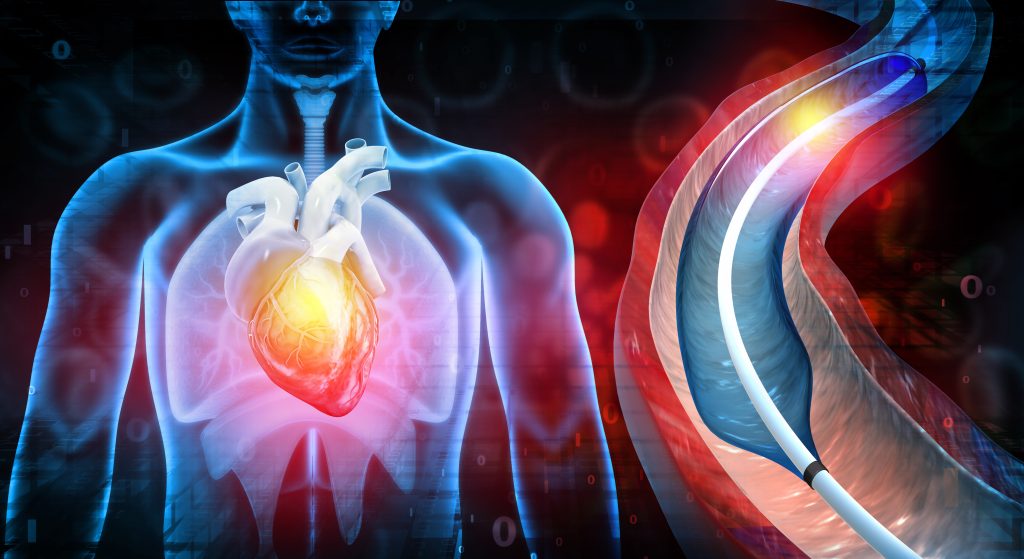Everything you need to know about Cardiology for lasting heart health
Everything you need to know about Cardiology for lasting heart health
Blog Article
Comprehending the Relevance of Cardiology in Modern Medical Care Providers
Cardiology plays a critical role in modern healthcare, particularly as heart problem continues to be the leading reason for mortality worldwide. Advancements in diagnostics and treatment have transformed patient care, enabling earlier treatments and enhanced end results. Furthermore, the shift in the direction of precautionary cardiology equips individuals to handle their health and wellness proactively. As innovation remains to evolve, the integration of cutting-edge options may better redefine cardiology's influence on public wellness, triggering a closer assessment of emerging fads and their implications.
The Frequency of Heart Illness and Its Effect On Public Health And Wellness
Although heart problem stays the leading cause of fatality worldwide, its influence extends much beyond individual people to affect public health systems and economic situations. The high prevalence of cardiovascular disease puts a substantial stress on healthcare resources, necessitating raised funding for avoidance, rehabilitation, and therapy programs. Public wellness initiatives need to resolve danger variables such as obesity, cigarette smoking, and inactive way of livings, which add substantially to the rising incidence of heart conditions.Moreover, the financial worry connected with heart problem is tremendous, encompassing not only straight medical costs however likewise indirect expenditures connected to lost efficiency and early death. Areas face challenges in managing these expenses, commonly bring about disparities in healthcare access and end results. As the populace ages and lifestyle-related threats proceed to rise, the necessity for reliable cardiology treatments comes to be extremely important. Subsequently, dealing with cardiovascular disease is not just an issue of private health and wellness however likewise an important public health and wellness concern.
Advancements in Cardiac Diagnostics and Imaging Techniques
Current improvements in heart diagnostics and imaging techniques have changed the area of cardiology, enhancing the capability to keep track of and detect heart problem. Strategies such as heart MRI, CT angiography, and echocardiography have actually become increasingly innovative, offering detailed photos of cardiac structures and features. These techniques permit the very early identification of problems like coronary artery illness, cardiac arrest, and valvular disorders.Moreover, innovations in non-invasive diagnostics, such as wearable innovation and remote monitoring gadgets, have encouraged clients and doctor. These tools promote real-time tracking of heart rhythms and various other vital indicators, causing prompt interventions. In addition, expert system is being integrated right into imaging analysis, enhancing precision and effectiveness in medical diagnosis.
Developments in Therapy Options for Heart Conditions
Current advancements in cardiology have actually brought about considerable technologies in treatment choices for heart disease. These include sophisticated medical strategies that enhance step-by-step end results and emerging medicines that supply new opportunities for treatment. As the area evolves, these advancements play an essential role in enhancing individual treatment and outcomes.
Advanced Surgical Techniques
Developments in medical strategies have actually transformed the landscape of cardiology, using brand-new wish for people with heart disease. Minimally intrusive treatments, such as catheter-based treatments, have significantly minimized recuperation times and healthcare facility remains. Strategies like robotic-assisted surgical procedure improve accuracy, enabling surgeons to navigate complex anatomical frameworks with greater accuracy. Additionally, developments in imaging innovation promote real-time visualization during procedures, boosting end results. Transcatheter aortic shutoff substitute (TAVR) exemplifies a development in treating aortic constriction, allowing valve replacement without open-heart surgical procedure. Furthermore, hybrid methods that integrate surgical and catheter-based techniques supply tailored remedies for different cardiac issues. These advanced medical methods not only boost individual security but additionally broaden treatment options, emphasizing the important function of innovation in modern-day cardiology techniques.
Emerging Medications and Treatments
As the landscape of cardiology proceeds to develop, arising therapies and drugs play a critical role in boosting treatment alternatives for heart disease. Advancements such as novel anticoagulants and progressed lipid-lowering agents have transformed the administration of heart diseases, greatly reducing individual morbidity and mortality. Furthermore, the advancement of gene therapies and regenerative medication provides encouraging opportunities for dealing with conditions formerly deemed incurable. Medical tests are constantly disclosing the efficacy of these treatments, pushing the limits of typical treatments. The assimilation of digital wellness technologies assists in tailored medication, allowing for tailored therapy strategies based on genetic and lifestyle aspects. Jointly, these advancements underscore the dynamic nature of cardiology, improving client results and redefining requirements of treatment in contemporary medical care.
The Duty of Preventive Cardiology in Person Treatment
Preventative cardiology plays a vital function in client care by focusing on the identification of risk elements that add to cardiovascular disease. Through lifestyle modification techniques and early detection strategies, medical care carriers can properly lower the occurrence of cardiovascular events - Cardiology care. This positive method not just enhances client outcomes but additionally advertises long-lasting health
Threat Element Recognition
While cardio illness remain a leading source of morbidity and death worldwide, efficient risk aspect identification works as a keystone of precautionary cardiology. Identifying threat aspects such as hypertension, diabetes mellitus, household, and hyperlipidemia history is essential for very early intervention. Medical care professionals make use of numerous screening methods to review these elements, allowing for customized safety nets. In addition, understanding an individual's lifestyle options, such as smoking and physical inactivity, better informs danger assessments. This complete analysis allows medical professionals to develop individualized care plans targeted at mitigating threats. By focusing on risk variable identification, health care systems can boost patient results and minimize the overall concern of cardio conditions, ultimately adding to boosted public health methods and source allowance.
Way Of Living Alteration Strategies
A wide range of research studies highlights the critical role of lifestyle modification approaches in reducing cardiovascular disease danger. These methods include dietary adjustments, raised exercise, smoking cessation, and weight management. By adopting a heart-healthy diet rich in fruits, vegetables, entire grains, and lean healthy proteins, people can decrease cholesterol levels and blood pressure. Routine exercise strengthens the heart and improves overall cardiovascular health. In addition, giving up smoking cigarettes substantially lowers the threat of heart problem and improves healing rates for those with existing problems. Weight monitoring additionally adds to cardiovascular health by mitigating various other danger factors such as diabetes mellitus and high blood pressure. Carrying out these way of living transforms not only advertises individual wellness however additionally works as a keystone of precautionary cardiology in patient treatment.
Very Early Discovery Strategies
Way of living modifications substantially add to decreasing cardiovascular condition dangers, yet they are most efficient when coupled with very early detection techniques. Preventative cardiology emphasizes the value of determining potential heart concerns before they rise into significant conditions. Strategies such as blood pressure surveillance, cholesterol screening, and progressed imaging innovations like echocardiograms play crucial duties in evaluating cardio health. Biomarkers and hereditary screening likewise boost the precision of very early discovery, permitting customized precautionary strategies. Routine heart risk examinations empower health care companies to interfere proactively, potentially stopping cardiac arrest and strokes (Dr Garcia). By incorporating these early detection techniques into routine treatment, people can gain from timely way of living treatments and targeted treatments, eventually boosting end results and enhancing lifestyle
Integrating Innovation Into Cardiology Practices
As innovations in visit here modern technology continue to reshape different fields, the integration of innovative tools and systems into cardiology methods has ended up being crucial for enhancing patient care and outcomes. Telemedicine platforms permit cardiologists to keep track of clients remotely, enhancing access to care while decreasing the concern on health care facilities. Wearable gadgets, such as smartwatches, allow constant heart rate monitoring, alerting both clients and physicians to possible concerns in real-time. In addition, expert system (AI) try this site is being used to evaluate large amounts of heart data, assisting in very early diagnosis and customized therapy plans. Advanced imaging techniques, including 3D echocardiography, boost visualization of heart structures, bring about much more accurate treatments. Electronic health and wellness documents (EHRs) simplify individual info administration, making sure that cardiologists have prompt access to important information. Together, these technical innovations are transforming cardiology, promoting aggressive monitoring and enhanced health and wellness end results for clients with cardio problems.
The Value of Client Education and Interaction
Person education and learning and interaction play a critical role in the administration of cardio health and wellness. By furnishing patients with understanding about their problems, therapy options, and lifestyle modifications, healthcare companies empower people to take an energetic duty in their care. This positive strategy can result in improved adherence to prescribed drugs, dietary changes, and workout regimens, eventually minimizing the risk of complications.Engagement likewise fosters a solid patient-provider relationship, encouraging open interaction and depend on. When patients feel notified and entailed, they are most likely to voice problems and ask questions, which can bring about better clinical end results. Additionally, academic resources, such as workshops or digital systems, can boost understanding and advertise self-management strategies. Generally, focusing on client education and engagement is crucial for boosting cardiovascular wellness, enhancing lifestyle, and decreasing medical care prices related to cardiovascular conditions.
Future Patterns in Cardiology and Their Prospective Influence

Frequently Asked Inquiries
What Way Of Life Modifications Can Reduce Heart Problem Danger?
The present question addresses way of living modifications that can greatly lower heart problem risk. Cardiology. Embracing a well balanced diet plan, taking part in normal exercise, keeping a healthy weight, managing anxiety, and avoiding cigarette can notably boost cardiovascular wellness
Exactly How Can I Identify Early Indicators of Heart Issues?
Identifying early indicators of heart problems entails monitoring signs and symptoms such as chest discomfort, lack of breath, tiredness, and uneven heartbeat. Timely recognition of these indicators can motivate needed clinical assessment and treatment for much better outcomes.
What Are the Distinctions Between Cardiologists and Cardiac Surgeons?
The distinctions in between cardiologists and cardiac specialists hinge on their functions; cardiologists primarily handle and identify heart disease via non-invasive methods, while heart cosmetic surgeons execute procedures to remedy architectural heart issues. Each plays an important, unique duty.

Exactly how Frequently Should I Get My Heart Wellness Checked?
The regularity of heart checkup varies based upon individual threat aspects. Typically, adults must undergo evaluations each to two years, while those with status quo might need even more regular assessments as suggested by health care professionals.
What Function Does Genetics Play in Cardiovascular Disease Risk?
Genes significantly affects heart disease threat, with familial patterns showing inherited problems. Particular genes can predispose people to hypertension, cholesterol concerns, and various other cardio issues, highlighting the relevance of genetic testing in assessing heart wellness. Heart illness continues to be the leading cause of fatality internationally, its impact prolongs much beyond specific patients to influence public health systems and economic situations. Public health efforts have to deal with threat factors such as weight problems, smoking, and inactive way of livings, which add significantly to the increasing occurrence of heart conditions.Moreover, the economic concern connected with heart disease is immense, including not only direct clinical expenses yet also indirect costs connected to lost productivity and premature death. click over here now Preventative cardiology plays a vital duty in patient care by concentrating on the recognition of threat factors that contribute to heart disease. Synthetic intelligence (AI) and maker understanding are boosting diagnostics and person surveillance, enabling very early discovery of heart conditions. The distinctions in between cardiologists and heart specialists exist in their functions; cardiologists mostly identify and handle heart conditions through non-invasive methods, while heart doctors execute medical treatments to fix structural heart issues.
Report this page